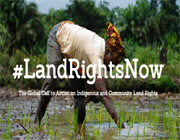
On 27 September 2014, Kapaeeng Foundation (KF), Bangladesh Indigenous Peoples Forum (BIPF) and Association for Land Reform and Development (ALRD) organized a seminar titled “Land Rights and Protection of Human Rights of Indigenous Peoples in Bangladesh” at CIRDAP Auditorium, Dhaka. The seminar highlighted the issues of land and land related human rights violations against Indigenous peoples in the country. Over one hundred and fifty participants, both indigenous and mainstream population, with different working background, participated very actively in the seminar.
Fazle Hossain Badsha MP, Convener, Parliamentary Caucus on Indigenous Peoples, was present as the chief guest while the seminar was presided over by Rabindranath Soren, Chairperson of KF and Jatiya Adivasi Parishad. Pankaj Bhattacharya, eminent politician; Syed Abul Maksud, eminent writer and researcher; Sanjeeb Drong, General Secretary of BIPF; Shakti Pada Tripura, Organizing Secretary of BIPF; Samshul Huda, Executive Director, ALRD; Pallab Chakma, Executive Director of KF and Rowshan Zahan Moni, Deputy Executive Director of ALRD, were also present in the seminar as panel discussants. The keynote paper of the seminar was presented by Mangal Kumar Chakma, Advisor of KF.
In his keynote paper, Mangal Kumar Chakma said, land is central to the life, history, culture and spirituality of indigenous peoples. Indigenous peoples consider land to be owned collectively by the community. However, the constitution of Bangladesh neither recognizes the collective ownership of land, nor it recognizes indigenous peoples as indigenous. Indigenous rights activists lobbied for constitutional recognition of their land rights before the 15th amendment of the constitution. But the Special Parliamentary Committee on the Amendment of Constitution had not even considered the proposal.
Mangal Kumar Chakma also mentioned, the lands of indigenous peoples have been grabbed for the purposes of security forces’ bases, tourist spots, reserved forest and businesses of corporations. Alongside, land grabbing and land disputes are often coupled with other forms of human rights violations like communal attack, killing, torture, rape and abduction of women and girls etc. Although there are a number of laws to protect the land and other rights of indigenous peoples, they are not fully enforced. As a result, perpetrators enjoy absolute impunity. Examples of some of such recent incidents are attack and rape of Bichitra Tirki, attack on indigenous Khasi people in Nahar Khasi Punji, killing of Dhudu Soren in Dinajpur and land alienation of Rakhaine people in Potuakhali-Borguna.
Fazle Hossain Badsha MP said, the rape and torture of Bichitra Tirki was due to land. After the incident of rape of Bichtra Tirki, he threw a question before the Prime Minister of the parliament: when Bichitra Tirki, the person who received award from the Prime Minister, got raped, didn’t the State get raped as well? Bangladesh needs to have a fundamental change to get it rid of the ‘Pakistani’ mentality.
Pankaj Bhattacharya said, indigenous peoples have no other choice but to have a strengthened movement for their land rights and right to self-determination. They need to learn look back to the movement of Sidhu-Kanhu, the Santal rebels against the British colonialism, and the people’s movement in the Chittagong Hill Tracts organized by M N Larma and his fellow comrades.
Syed Abul Maksud said, Bangladesh state has turned into a deceiver state. The Parliamentary Caucus on Indigenous Peoples and the progressive MPs in the parliament, though less powerful, can create pressure on the government in protecting the land rights of indigenous peoples. Otherwise indigenous peoples will be extinct by 2021.
Sanjeeb Drong opined, alongside land, the most crucial issue indigenous peoples are encountering now is the issue of identity. The very identity of indigenous peoples is under crisis. State is deceiving indigenous peoples again and again. As a result, indigenous peoples have been fall in never-seen-before worst situation in the history. Government should implement the CHT Accord fully, set-up a land commission for indigenous peoples in the plains and provide constitutional recognition to save indigenous peoples and their rights.
Shamsul Huda mentioned, although through its election manifesto the current ruling government made many promises regarding the rights of indigenous peoples, they have not been implemented yet. If the land grabbing in the indigenous peoples’ territories is not stopped, indigenous peoples will be extinct soon.
Alongside panel discussants, participants, both indigenous and non-indigenous persons, coming from different places and organizations, also shared their valuable experiences during the open discussion session. One the most valuable participants was Robi Soren, son of Dhudu Soren, who was killed recently by influential land grabbers. Notably, even Dhudu Soren’s father was killed by the same miscreants in 1973 in connection with land grabbing.
The seminar put following demands for ensure indigenous peoples’ rights over lands, territories and resources and realization of their just human rights:
(1) Traditional land rights of indigenous peoples has to be respected and implemented.
(2) Separate Land Commission for indigenous peoples of plain lands has to be formed for restitution of their dispossessed lands.
(3) Effective measures have to be taken for returning the lands of indigenous peoples and minorities that seized from them in the name of vested property.
(4) CHT Accord has to be implemented properly and for this purpose, roadmap has to be declared.
(5) CHT Land Dispute Resolution Commission Act 2001 has to be amended as per 13-point amendment proposals which were agreed by CHT Affairs Ministry and CHT Regional Council and also endorsed by CHT Accord Implementation Commission and Inter-ministerial meeting held on 30 July 2012 with the then law minister in the chair.
(6) East Bengal State Acquisition and Tenancy Act 1950 has to be amended with an aim to conform to the standards of the ILO Convention No. 107 and UNDRIP and has to be implemented equally in all districts of plain lands.
(7) Rights to free, prior and informed consent and meaningful participation of indigenous peoples have to be ensured before taking government and non-government projects for their development.
(8) Land-related human rights violations including violence against indigenous women have to be investigated and those involved with these incidents have to be brought to justice.
(9) Indigenous Peoples Rights Act has to be enacted and National Commission on Indigenous Peoples’ Rights has to be formed.



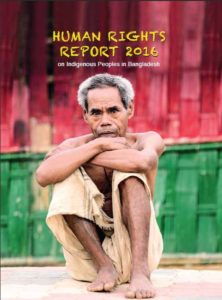
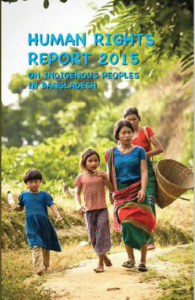
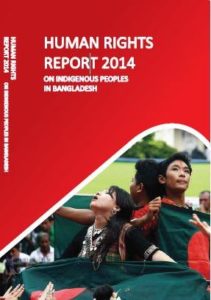
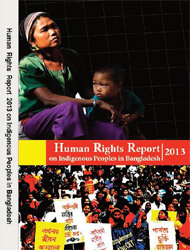
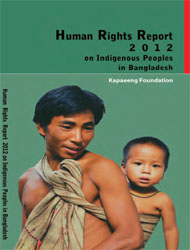
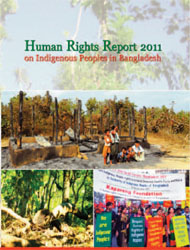
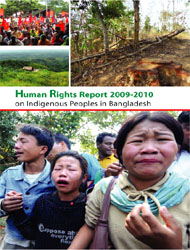

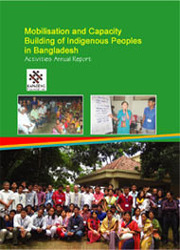



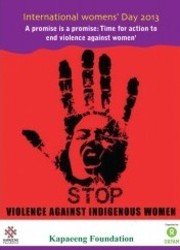
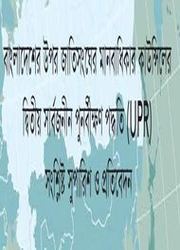
 October 1st, 2014
October 1st, 2014  KapaeengUser
KapaeengUser  Posted in
Posted in 